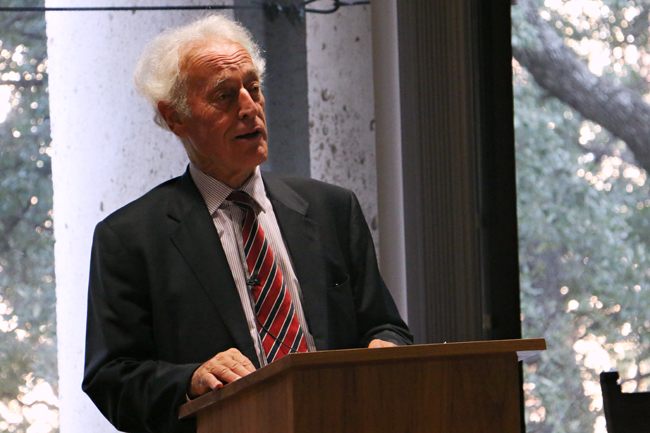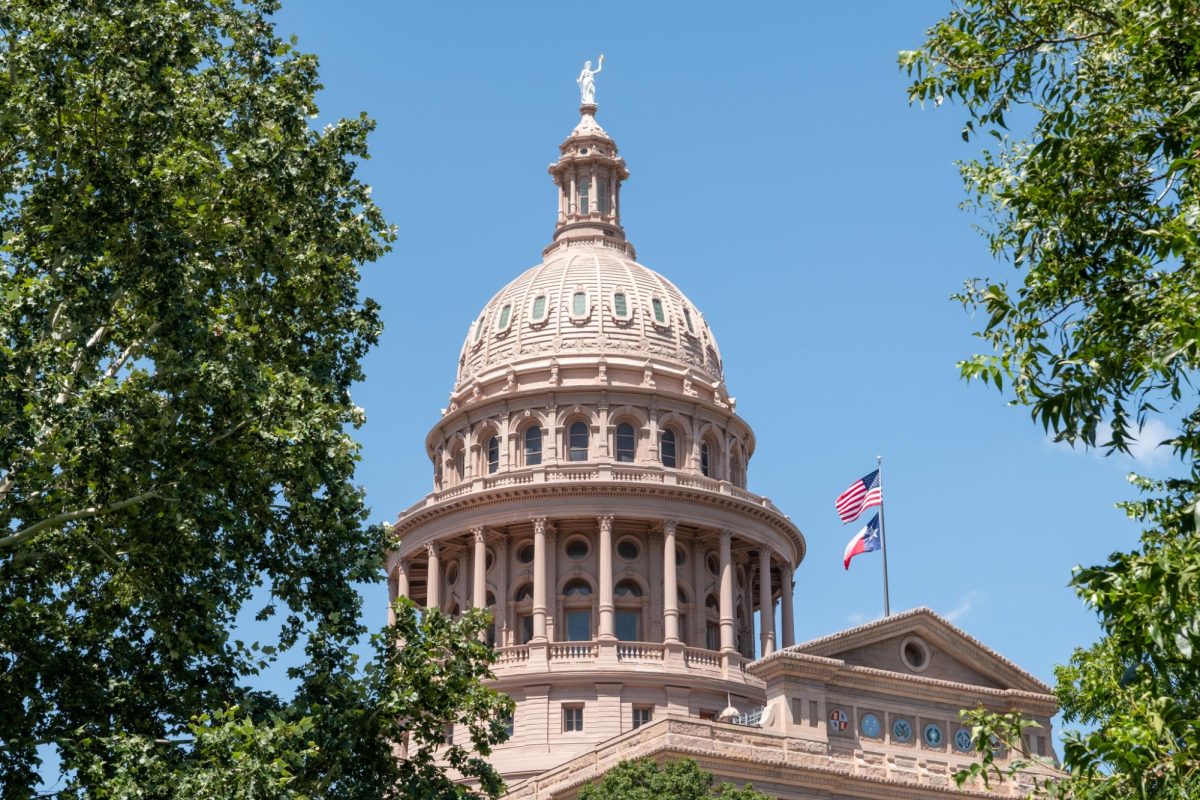Author Kenneth Morgan discussed the history of Wales during World War I on Friday at the Harry Ransom Center as part of its weekly “British Studies Seminar” series.
“I want to focus particularly on Wales, where I came from, because war had a very particular impact on the society, culture and the sense of nationhood in Wales,” Morgan said.
In discussing Wales before the outbreak of the war, Morgan said its coal fields and seaports brought economic prosperity while church choirs exemplified cultural achievement.
“Welsh before the war had a great sense of optimism,” Morgan said. “The Welsh choirs were at their peak.”
Morgan also described the rise of a liberal government in Wales that was led by David Lloyd George, who became British prime minister in December 1916.
“He was a great figure of radical, nationally conscious liberalism government,” Morgan said. “He then emerged as the most prominent, dynamic figure in liberal government.”
Morgan also said Lloyd George helped the war effort by mobilizing troops and supporting the liberal ideals of the war.
“He became in particular the great advocate of conscription,” Morgan said. “He claimed, as I said, that it was a war of liberal values.”
Despite Lloyd George’s enthusiasm, Morgan said the war weakened liberalism in Wales and plunged the state into an economic and cultural depression.
“The social base of Welsh liberalism was also being undermined,” Morgan said. “[Wales] shortly, lurched into depression and mass unemployment. [There were] diminished signs of the Welsh language and the erosion of the strength of the Welsh choir.”
History junior Jonathon Parker said he took a particular interest in the formation of Wale’s national identity.
“I didn’t know much about national identity in Wales,” Parker said. “I’m British myself, but I’m not very familiar with Wales. I gained a much better general impression of what Wales was like.”
English senior Victor Hernandez, who has visited Wales, said the discussion informed people about conflict in the U.K.
“I think it was an excellent opportunity for people of this city to get acquainted with the power struggles that exist inside the United Kingdom, which are foreign to almost everyone outside the commonwealth,” Hernandez said. “I thought it was insightful and a brave account of a brave little nation.”





















